Is HondaCare Worth the Cost? A Guide to Extended Warranty Plans
What Exactly is HondaCare?
At its core, HondaCare is an extended vehicle service contract offered directly by American Honda Motor Co., Inc. It’s designed to pick up where your factory bumper-to-bumper warranty leaves off, providing coverage for specific mechanical breakdowns and electrical failures after your standard warranty expires. Unlike your initial manufacturer's warranty, which comes with the car, HondaCare is an optional purchase. It's not just an 'extended warranty' in the traditional sense; it’s a service contract that outlines specific coverages, exclusions, and terms, ensuring your vehicle continues to be protected by genuine Honda parts and certified technicians.
The Different Types of HondaCare Plans
HondaCare offers various plans tailored to different vehicle situations and owner needs. Understanding these options is crucial to choosing the right coverage:
- New Vehicle Plans: These plans are for brand-new Honda vehicles and can be purchased before your factory warranty expires. They extend the comprehensive coverage for a longer duration and/or mileage.
- Pre-Owned Vehicle Plans: Designed for used Honda vehicles that are still within their factory warranty period, or sometimes even slightly beyond, these plans offer varying levels of coverage for pre-owned cars, SUVs, and trucks.
- Certified Pre-Owned (CPO) Plans: While Honda Certified Pre-Owned vehicles already come with an extended powertrain warranty, HondaCare CPO plans can upgrade that to a more comprehensive level, similar to new vehicle coverage, giving you even greater assurance.
- Powertrain Coverage: This is often the most basic and affordable extended plan, focusing solely on the engine, transmission, drive axle, and other crucial powertrain components. It's a good option if you're primarily concerned about the most expensive repairs.
- Drivetrain Coverage: Similar to powertrain but can include more components like the driveshaft and axles, providing a slightly broader scope of protection for the parts that make your wheels turn.
- Comprehensive/Component Coverage: These are the most extensive plans, covering hundreds of components beyond the powertrain, including electrical systems, heating and cooling, steering, suspension, and more, effectively mimicking bumper-to-bumper coverage for a longer period.
Each plan type typically comes with various term options, such as 5 years/60,000 miles, 7 years/100,000 miles, or even longer, allowing you to customize protection based on your expected ownership period and driving habits.
Key Benefits of Choosing HondaCare
When considering an extended warranty, the benefits of opting for a manufacturer-backed plan like HondaCare are significant:
- Genuine Honda Parts: Repairs are performed using only Honda-approved parts, ensuring compatibility and maintaining your vehicle's original performance and integrity.
- Factory-Trained Technicians: Your Honda will be serviced by technicians specifically trained on Honda vehicles, using specialized tools and diagnostic equipment. This expertise can be invaluable for complex repairs.
- Nationwide Coverage: HondaCare is honored at all authorized Honda dealerships across the U.S., allowing you to get service no matter where you are.
- No Deductible Options: Many HondaCare plans offer a $0 deductible, meaning you pay nothing out-of-pocket for covered repairs. Plans with a small deductible (e.g., $100) are also available and can lower the upfront cost of the plan.
- Roadside Assistance: Most HondaCare plans include valuable benefits like 24/7 roadside assistance, flat tire changes, battery jump-starts, emergency fuel delivery, and lockout assistance.
- Rental Car Reimbursement: If your vehicle needs to be in the shop for a covered repair, HondaCare typically provides reimbursement for a rental car, minimizing disruption to your daily routine.
- Trip Interruption Benefit: Should your Honda break down more than 100 miles from home due to a covered repair, HondaCare can help with lodging and meal expenses.
- Transferability: HondaCare plans are fully transferable to a subsequent private owner, which can significantly enhance your vehicle's resale value.
These benefits collectively offer a strong sense of security and convenience that can make ownership a much smoother experience.
Factors to Consider Before Investing in HondaCare
While the benefits are clear, HondaCare isn't for everyone. Here are critical factors to weigh before making your decision:
Your Driving Habits and Mileage
Do you drive a lot, accumulating high mileage quickly? Or is your Honda mainly a weekend warrior? If you plan to put a lot of miles on your vehicle, you're more likely to experience component wear and tear, making an extended warranty a more appealing option. Conversely, if you drive sparingly, you might not utilize the full benefits before the time or mileage limits are reached.
Honda's Reputation for Reliability
Hondas are renowned for their reliability and low ownership costs. Many owners choose Hondas precisely because they expect fewer breakdowns. This excellent track record might lead some to believe an extended warranty is unnecessary. However, even the most reliable vehicles can experience unexpected and costly component failures, especially as they age.
Your Financial Situation and Risk Tolerance
Can you comfortably afford a sudden, major repair bill of $1,000, $2,000, or even more? If an unexpected repair would put a significant strain on your finances, HondaCare acts as a financial safety net, converting potential large, unpredictable expenses into a predictable, upfront cost. If you have a robust emergency fund specifically for auto repairs, you might be more comfortable self-insuring.
Your Vehicle's Age and Current Warranty Status
When does your factory warranty expire? HondaCare plans are typically most cost-effective when purchased while your vehicle is still under its original warranty. The closer you get to the expiration, or if your warranty has already expired, the more expensive an extended plan can become, or your options may be limited.
Understand the Coverage and Exclusions
Always read the fine print. Know exactly what components are covered and, just as importantly, what is excluded. Some plans cover almost everything, while others focus on specific systems. Ensure the plan addresses your primary concerns and isn't just duplicating existing coverage or covering things that rarely break.
Cost vs. Potential Savings
Get a quote for the HondaCare plan that interests you and compare that cost against the potential expenses of common repairs for your specific Honda model as it ages. Do some research on typical out-of-warranty repair costs for major components like the transmission, engine, or complex electrical systems. This will help you perform a cost-benefit analysis.
HondaCare vs. Third-Party Extended Warranties
Beyond HondaCare, a multitude of third-party companies offer extended service contracts. While these might sometimes appear cheaper upfront, there are key differences to consider:
- Manufacturer-Backed vs. Independent: HondaCare is backed by American Honda, meaning there's no third-party administrator between you and the manufacturer. This often translates to a smoother claims process and guaranteed use of genuine Honda parts and certified technicians. Third-party plans are administered by independent companies, which may have different repair facility requirements and potentially stricter claims procedures.
- Repair Network: HondaCare is accepted at all authorized Honda dealerships. Third-party plans often have a network of approved repair shops, which may or may not include Honda dealerships, or they may require you to pay upfront and then seek reimbursement.
- Parts and Labor: With HondaCare, you're assured genuine Honda parts and labor performed by technicians specifically trained on your vehicle. Third-party plans might allow for aftermarket parts or may not specify manufacturer-trained technicians.
- Stability: Manufacturer-backed plans generally offer more financial stability than some independent third-party providers, which can sometimes go out of business.
When Might HondaCare Be a Smart Investment?
- You plan to keep your Honda for many years beyond its factory warranty.
- You drive a higher-mileage vehicle or anticipate putting many miles on it.
- You want predictable budgeting for potential future repairs and value peace of mind.
- You rely heavily on your vehicle and can't afford unexpected downtime or repair costs.
- You appreciate the assurance of genuine Honda parts and dealership-level service.
- You're buying a used Honda and want to extend its protection against unforeseen issues.
When Might You Skip HondaCare?
- You plan to sell or trade in your Honda before the factory warranty expires.
- You lease your vehicle, as the lease term often aligns closely with the factory warranty.
- You have a robust emergency savings fund specifically for unexpected car repairs.
- You drive very few miles annually, making it less likely you'll incur major mechanical failures during the extended period.
- You're comfortable with the risk of paying for repairs out-of-pocket, should they arise.
- You're a DIY enthusiast who can handle minor repairs yourself.
Tips for Making Your Decision
- Get Multiple Quotes: Don't just accept the first offer. Dealerships can sometimes offer varying prices for the same HondaCare plan.
- Negotiate: Extended warranties, even manufacturer-backed ones, often have room for negotiation.
- Understand Your Dealer's Role: While HondaCare is a Honda product, it's sold through dealerships. Be sure you understand the terms offered by your specific dealer.
- Read the Contract Carefully: Before signing, review every detail, including coverage limits, exclusions, deductible, and claims process.
- Consider Your Financing: If you're financing your vehicle, rolling the cost of HondaCare into your car loan will increase your monthly payment and total interest paid.
Conclusion
Deciding whether HondaCare is worth the cost is a highly personal decision with no one-size-fits-all answer. It boils down to your personal finances, risk tolerance, driving habits, and how long you plan to keep your beloved Honda. For some, the peace of mind, comprehensive coverage, and certainty of genuine Honda service make it a worthwhile investment. For others, Honda's strong reliability record and a healthy emergency fund might make it an unnecessary expense. By carefully evaluating the factors outlined in this guide, you'll be well-equipped to make an informed decision that's right for you and your Honda.Where can I find my VIN?

Related Topics
- Warranties Explained: New vs. Certified Pre-Owned (CPO) INFINITI Coverage - Which is Right for You?
- Certified Confidence: Is the Jeep CPO Warranty Worth the Price Tag?
- Beyond the Basics: What Mazda's Powertrain Warranty Really Covers (and for How Long)
- Is a Toyota Extended Warranty a Smart Investment? A Long-Term Guide

